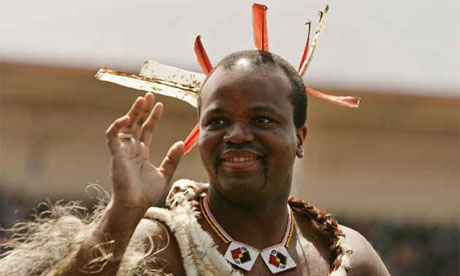The South African Catholic Bishops’ Conference is urging reforms in Swaziland, calling sub-Saharan Africa’s last absolute monarchy a police state that is “tearing itself apart.”
A statement issued Thursday after the bishops visited Swaziland said the king should lift a state of emergency that has been in place for nearly four decades, reinstate “the full range of human rights” and open talks on democratization.
The bishops said Swazis are deprived of rights of expression, assembly and association.
“This makes Swaziland a police state in which political parties remain banned,” the bishops said. “Swaziland is a country in turmoil; a country tearing itself apart from the inside by the actions of an uncaring head of state and a regime that is getting more brutal by the day.”
While Swaziland’s constitution “supposedly guarantees the rights enshrined in the Universal Declaration of Human Rights,” it simply enshrines the king’s 1973 decree, in which the king suspended the constitution.
The powers enshrined in that decree “need to be curtailed since their abuse by those in authority is the primary cause of the current crisis, in which dissenting views meet with brutality of the highest order,” the bishops said.
“Human rights activists have their homes arbitrarily raided” and “are arrested, detained and beaten up by security forces, presumably under orders of the king, who is the commander-in-chief,” they said.
Swaziland’s prime minister has said his country will resist outside pressure.
Swaziland’s King Mswati III lives lavishly in a country of 1 million beset by high levels of poverty, unemployment and AIDS. Mswati is accused of repressing human rights and harassing and jailing pro-democracy activists.
Besides the government crackdown, reformists have had to contend with reverence for the monarchy among many Swazis.
Source
